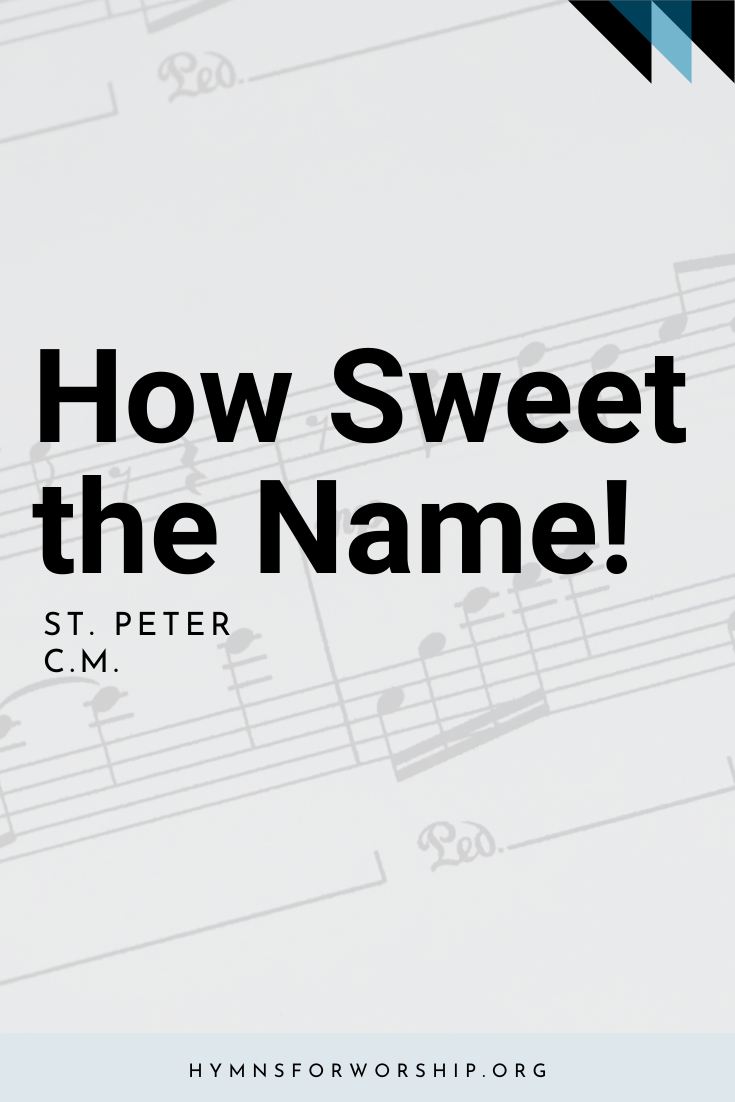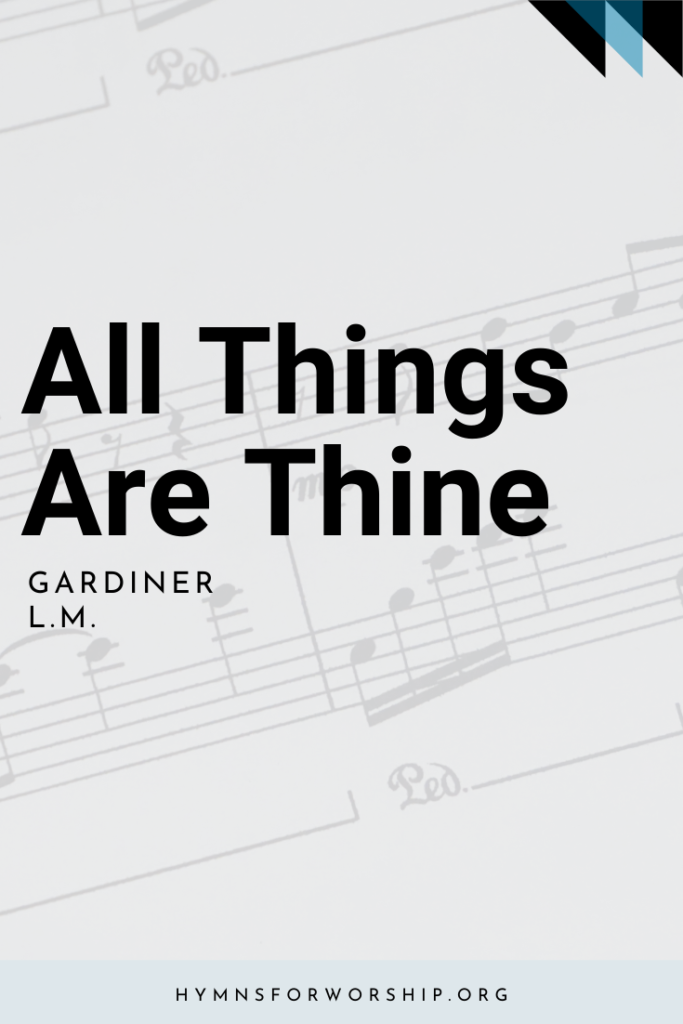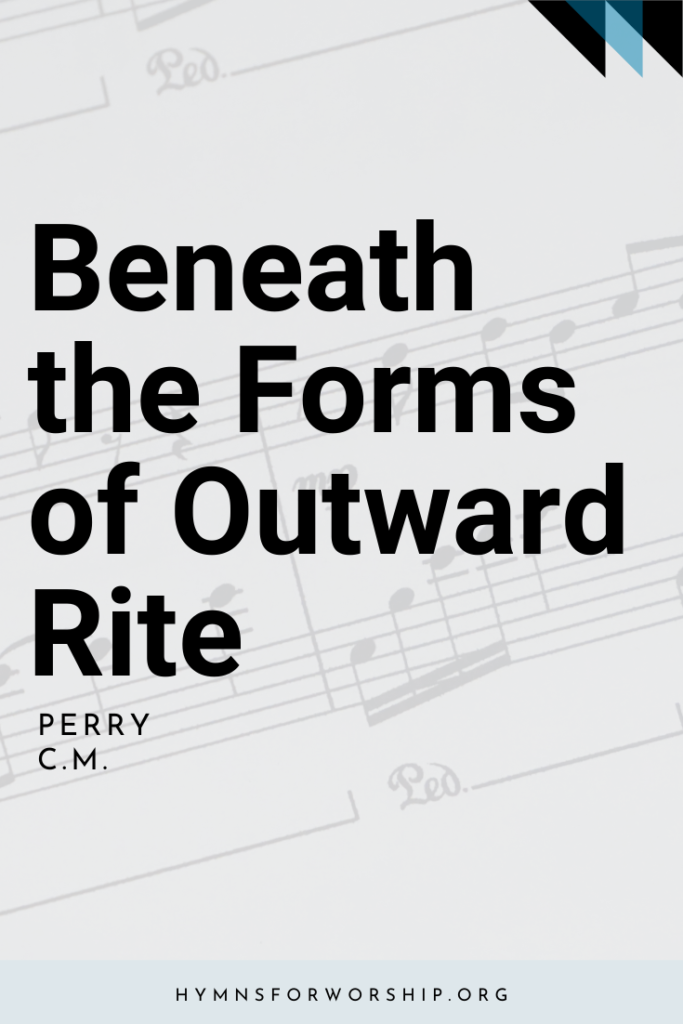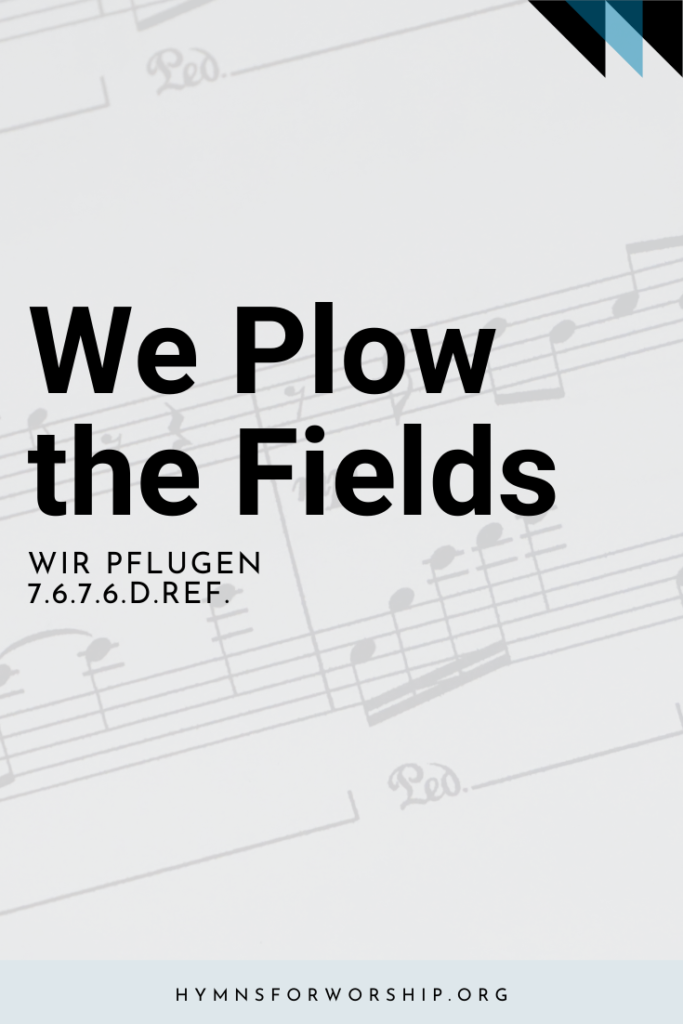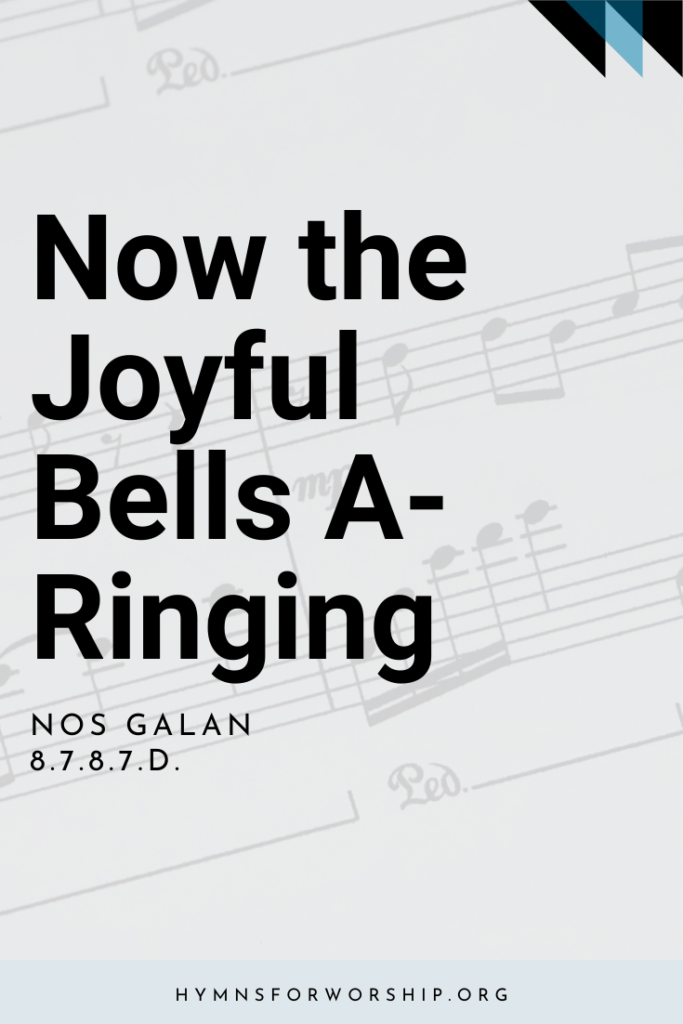JESUS CHRIST >> GLORY & PRAISE
SDAH 238
How sweet the name of Jesus sounds
In a believer’s ear!
It soothes his sorrows, heals his wounds,
And drives away his fear.


Text
1
How sweet the name of Jesus sounds
In a believer’s ear!
It soothes his sorrows, heals his wounds,
And drives away his fear.
2
It makes the wounded spirit whole,
And calms the troubled breast;
“Tis manna to the hungry soul,
And to the weary, rest.
3
Dear name, the rock on which I build,
My shield and hiding place,
My never failing treasury, filled
With boundless stores of grace.
4
Jesus! my Shepherd, Guardian, Friend,
My Prophet, Priest, and King!
My Lord, my life, my way, my end!
Accept the praise I bring.
5
Weak is the effort of my heart,
And cold my warmest thought;
But when I see Thee as Thou art,
I’ll praise Thee as I ought.

Hymn Info
Biblical Reference
(a) S.S. 1:3 (b) Prov 18:14 (c) Ps 3:3; Ps 32:7 (d) Ps 23:1; Jas 2:23; John 6:14; Heb 7:26; Matt 21:5; John 20:28
Author
John Newton (1725-1807)
Year Published
1779
Hymn Tune
ST. PETER
Metrical Number
C.M.
Composer
Alexander R. Reinagle (1799-1877)
Tune Source
1836
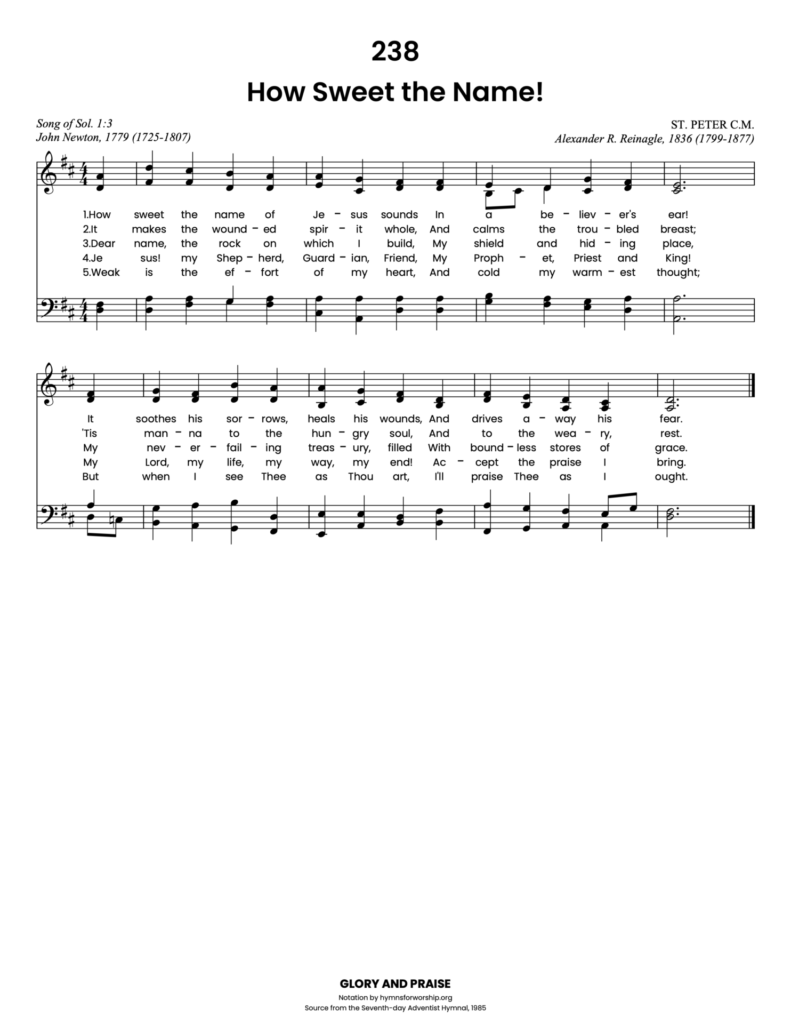
Get the hymn sheet in other keys here
Notes
Make each hymn more meaningful with these helpful tools: Short, ready-to-use hymn introductions for church bulletins, multiple ways to introduce a hymn based on your worship theme and in-depth history and insights to enrich your song service.

